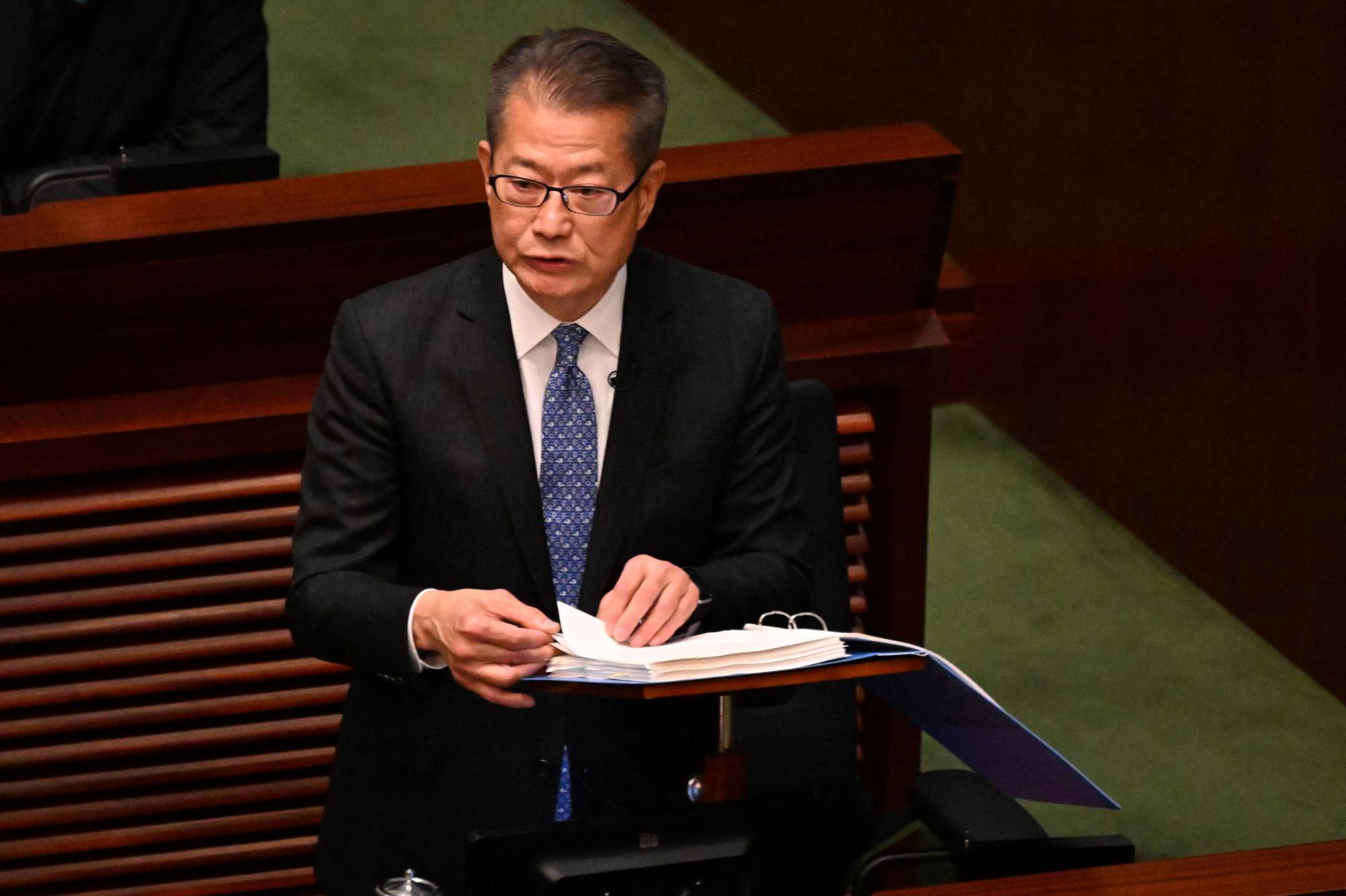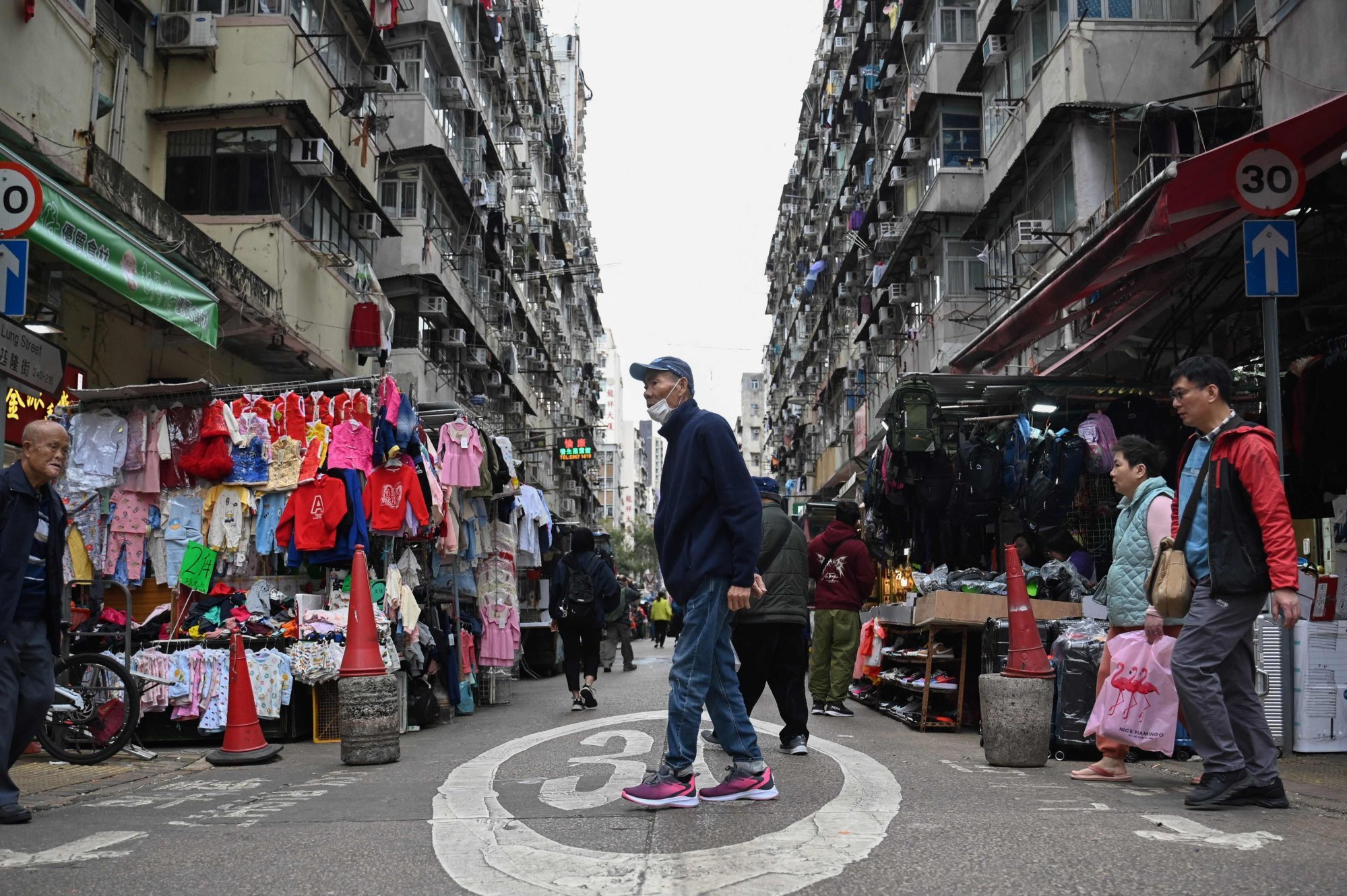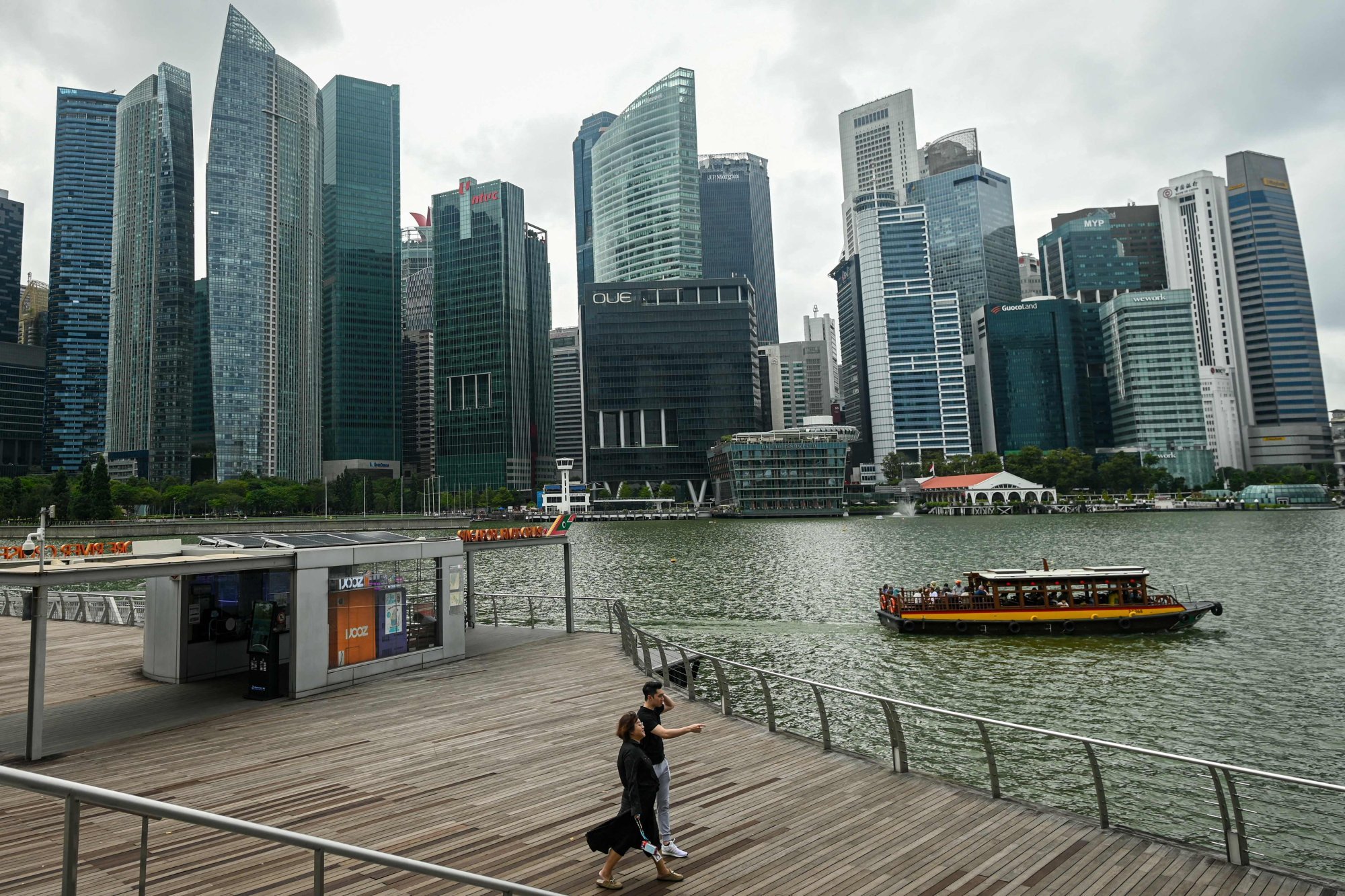Hong Kong's budget for the 2025-26 financial year, revealed this week by Financial Secretary Paul Chan, was notable for its lack of measures to address the underlying economic challenges facing the city. The budget primarily focused on reducing costs and making spending cuts to narrow the budget deficit, which the government has experienced in all but one of the past six financial years.
Chan vowed to return the operating account to surplus by the financial year 2026-27. However, this goal seems uncertain: the economy contracted in three of the past six years, and its rebound since the Covid-19 pandemic has been sluggish at best. Growth last year was only 2.5 percent, while neighboring Singapore experienced a GDP increase of 4.4 percent.
Given the escalating trade disputes, rising inflation in the United States, and mainland China's prolonged property downturn accompanied by persistent deflationary pressures, it would be imprudent for Hong Kong's government to anticipate a swift improvement in the city's economic situation - one that would enable it to balance its budget within the next 12-24 months.
Our new platform of specially selected content with explanations, frequently asked questions, in-depth analyses, and graphical representations is provided by our team of award-winning professionals.
Hong Kong's expenses are also on the rise. Any savings generated by short-term cost-cutting measures are likely to be overshadowed by growing demands for healthcare and social spending in the coming years. Evidently, Hong Kong needs to reassess its revenue system, rather than solely focusing on reducing expenditures.
The government should acknowledge that the deficits are a result of fundamental, rather than cyclical, factors. It should then implement the necessary reforms - not only to restore Hong Kong's financial stability, but also to place the economy on a more stable basis.

Better macroeconomic settings
Firstly, authorities must acknowledge that the growth of the city is primarily driven by growth on the mainland, while its monetary policy is largely influenced by Washington due to Hong Kong's fixed exchange rate with the US dollar. This has led to a situation where, for the majority of the past three years, the Hong Kong Monetary Authority has had to intervene to support the local currency, resulting in higher interest rates in the city as the US Federal Reserve increased rates to combat inflation.
The outcome was a more robust Hong Kong dollar (in comparison to the yuan and other major regional currencies) and higher interest rates. The former negatively impacted exports, while the latter reduced investments at a time when Hong Kong's slow economic growth required a weaker currency and lower interest rates.
Authorities also hoped that inflationary pressures in the US would subside, thereby enabling US and Hong Kong interest rates to decrease. Nevertheless, it seems unlikely that inflation in America will decrease substantially this year, and US President Donald Trump's tariffs may also contribute to inflationary pressures.
Aside from these cyclical factors, Hong Kong's monetary policy is not well-suited for an economy that is now more closely synchronized and connected to the mainland's. Given the mainland's economic struggles with deflation, the difference between the interest rates Hong Kong needs to support its recovery and the interest rates it is required to maintain due to the peg is widening and becoming increasingly unsustainable.
If the Hong Kong dollar cannot depreciate, the city's adjustment can only come from internal devaluation, meaning falling wages and prices. This is already occurring to some extent as millions of Hong Kong residents travel to Shenzhen and the rest of the Greater Bay Area to shop, use services, and purchase properties - exerting more deflationary pressures on the local economy.

Tax restructuring
Without the ability to use interest rates or exchange rates to boost Hong Kong's recovery, fiscal policy must take on the primary responsibility. Unfortunately, this is when the government is also constrained by its substantial budget deficits.
The shortfalls are at least partially a result of Hong Kong's ongoing inability to expand and diversify its tax base, leading to excessive dependence on revenue from land sales. A plan to implement a goods and services tax (GST) in 2006 was shelved due to public discontent. Since then, no one in Hong Kong's governing body has had the political will to revive this proposal.
Although there is no ideal time to introduce or raise taxes politically, governments have discovered that low- and middle-income groups can be compensated through a system of tax rebates and credits, ensuring domestic consumption is not negatively impacted by a GST increase.
Singapore, for example, increased its Goods and Services Tax (GST) from 3 per cent to 5 per cent in 2004, to 7 per cent in 2007, and most recently to 9 per cent - while offering generous tax credits to offset the increased GST burden for many Singaporeans over the next few years. The GST is now the city-state's second-largest source of tax revenue, after corporate income tax.
Household consumption accounts for approximately 64 percent of Hong Kong's GDP, significantly higher than in Singapore. Consumption taxes, particularly the GST, which is the least distorting and most efficient, should play a more substantial role in Hong Kong. If implemented at a low rate of 2-3 percent, the negative effects on domestic consumption would be minimal and can be easily mitigated.
Hong Kong should also seriously consider implementing wealth taxes. Besides generating revenue, wealth taxes serve as an important signal that the burden of adjustment is shared by the wealthy. This can also help garner public support for difficult policy changes.

Crisis as opportunity
Hong Kong should regard the budget crisis as a chance to revamp its economy. This is what Singapore did in the early 2000s when a series of setbacks, including the Asian Financial Crisis, the September 11 attacks, and SARS, made the city-state's outlook even bleaker.
In contrast to being paralyzed by the pessimism surrounding its economic outlook, Singapore embarked on a wide-ranging effort to revamp its tax system (notably to increase the GST's contribution to national revenues), upgrade key sectors, invest in new drivers of growth, and develop a more diversified and entrepreneurial economy.
It's evident 20 years after this restructuring effort, particularly when comparing it to Hong Kong. In 2003, both economies had comparable per capita incomes, but Singapore is now over 70 per cent wealthier than Hong Kong.
The lesson for Hong Kong is that crises can be a valuable opportunity to challenge long-held assumptions and beliefs, remake organisational habits, and pursue much-needed or long-delayed reforms. In fact, good leaders sometimes create a sense of crisis to mobilise the public to support necessary but unpopular changes.
Hong Kong's budget deficits are unlikely to be a temporary occurrence; it would not be prudent for the government to assume they will vanish soon. Instead, the weak post-Covid recovery in Hong Kong should serve as a compelling reason for the authorities to restructure the economy, expand the tax base, and create a more equitable society.
The Cost of Inaction: China's Policy Missteps During and After COVID-19
More Articles from SCMP
Price gougers beware: Malaysia warns of action as Ramadan approaches
Hong Kong border fee study will examine its effects on travelers and traffic flow.
Eight residential sites in Hong Kong will be sold in 2025-26 to produce 4,450 private flats.
This article was first published in the South China Morning Post (www.scmp.com), a leading news outlet providing comprehensive coverage of China and Asia.
Copyright (c) 2025. South China Morning Post Publishers Ltd. All rights reserved.
